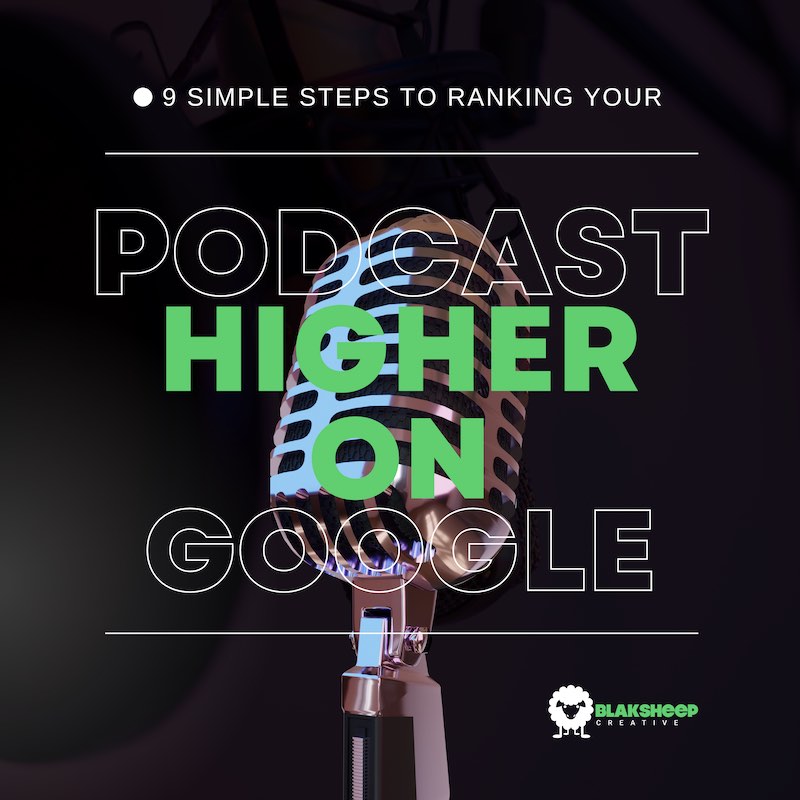It seems like everyone calls themself a podcaster these days. Some might even say that the market is oversaturated.
But if you want to stand out in the crowded world of podcasting, you need to be ranking high in Google search results. And that means understanding how SEO works and how to optimize your website and podcast pages for Google ranking.
Fortunately, it’s not as complicated as it sounds. By following a few simple tips, you can improve your chances of ranking higher in Google search results and gaining more listeners.
1. Submit your podcast to popular directories
One of the best ways to get your podcast indexed by Google is to submit it to popular directories like Apple Podcasts (iTunes), Stitcher, and Spotify. This will not only make it easier for people to find your show, but it will also help Google index your episodes.
Make sure your podcast is listed on Google Play.
It goes without saying that you should also list your podcast on Google Play. After all, it is owned by Google, and the more Google platforms your brand is present on, the better.
Don’t forget about Youtube!
Again, another Google-owned platform. You can upload your podcast episodes to Youtube and then embed them onto your website or blog. This is a great way to increase your reach and get more people to listen to your show.
2. Create a catchy and interesting show description
Your podcast description is one of the first things potential listeners will see, so making a good impression is essential.
Your description should be concise, engaging, and accurate. It should also include relevant keywords that people might use to search for your show.
For example:
- If you have a podcast about marketing, some keywords you might use in your description are “marketing,” “SEO,” “social media,” and “content marketing.
- If you have a podcast about sports cars, some keywords you might use in your description are “sports cars,” “luxury cars,” “exotic cars,” and “car racing.”
By including keywords in your description, you’re more likely to show up in search results when people are looking for a podcast like yours.
Why?
Look at the image below:
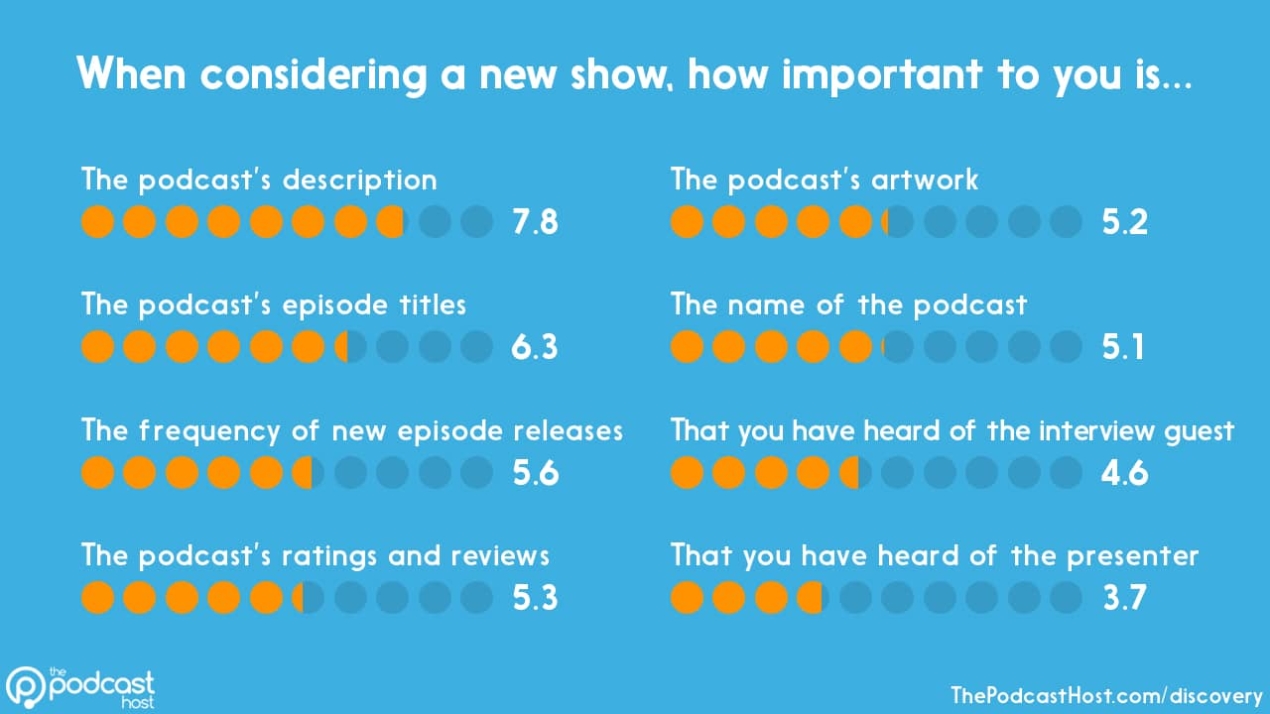
Image Source: The Podcast Host
In a recent study, podcast listeners were asked, “When considering a new show, how important to you is…“
This was graded on a scale from 0-10, with 0 being not important at all and 10 very important. The answers?
- The podcast’s description – 7.8
- The podcast’s episode titles – 6.3
- The frequency of new episode releases – 5.6
- The podcast’s ratings and reviews – 5.3
- The podcast’s artwork – 5.2
- The name of the podcast – 5.1
- That you have heard of the interview guest – 4.6
- That you have heard of the presenter – 3.7
As you can see, the podcast’s description is the most important thing a would-be listener pays attention to.
Keywords make the search engine world go round. Google and other search engines use these to index and rank websites and content in search results.
3. Use the right keywords in your title and description
When it comes to ranking high in Google, using the right keywords is essential.
Your podcast and episode titles should include relevant keywords that people are likely to use when searching for a show like yours.
⭐ PRO TIP #17 ⭐
— Podspike (@podspike) June 29, 2022
Your title is your show pitch in a nutshell. Make sure it showcases something key about your podcast
Think
– Content
– Format
– Topic
– Host
– Tone
Equally, literal titles can make for better search results 👍#PodcastMarketing #PodcastPromotion #PodcastTips pic.twitter.com/NtkBAwUrKB
Avoid the urge to create flashy or clickbait-y titles that don’t accurately reflect the content of your show. Not only will this frustrate potential listeners, it will also hurt your ranking in Google search results.
For example:
If your podcast is about car racing, a title like “10 Tips for Winning the Daytona 500” would be more effective than “How to Race Cars Like a Pro.”
The former title includes relevant keywords and accurately reflects the episode’s content. The latter title is misleading and won’t do anything to help you rank higher in Google search results.
In addition to using keywords in your title, make sure to use them in your podcast description. As we mentioned earlier, your description is one of the first things potential listeners will see, so making a good impression is essential.
Your description should be concise, engaging, and accurate. It should also include relevant keywords that people might use to search for your show.
For example:
Take our previous example about car racing. Some keywords you might use in your description are “car racing,” “NASCAR,” “Daytona 500,” and “auto racing.”
By including these keywords in your description, you’re more likely to show up in search results when people are looking for a podcast about car racing.
Remember, keywords are important, but they’re not everything. Your titles should still be catchy and exciting enough to entice people to click.
4. Upload high-quality cover art
Remember all of those podcasts we mentioned earlier? I’d be willing to bet that most of them have artwork that looks like it was created in Microsoft Paint.
Don’t be that podcast.
Your cover art is one of the first things potential listeners will see, so it must make a good impression.
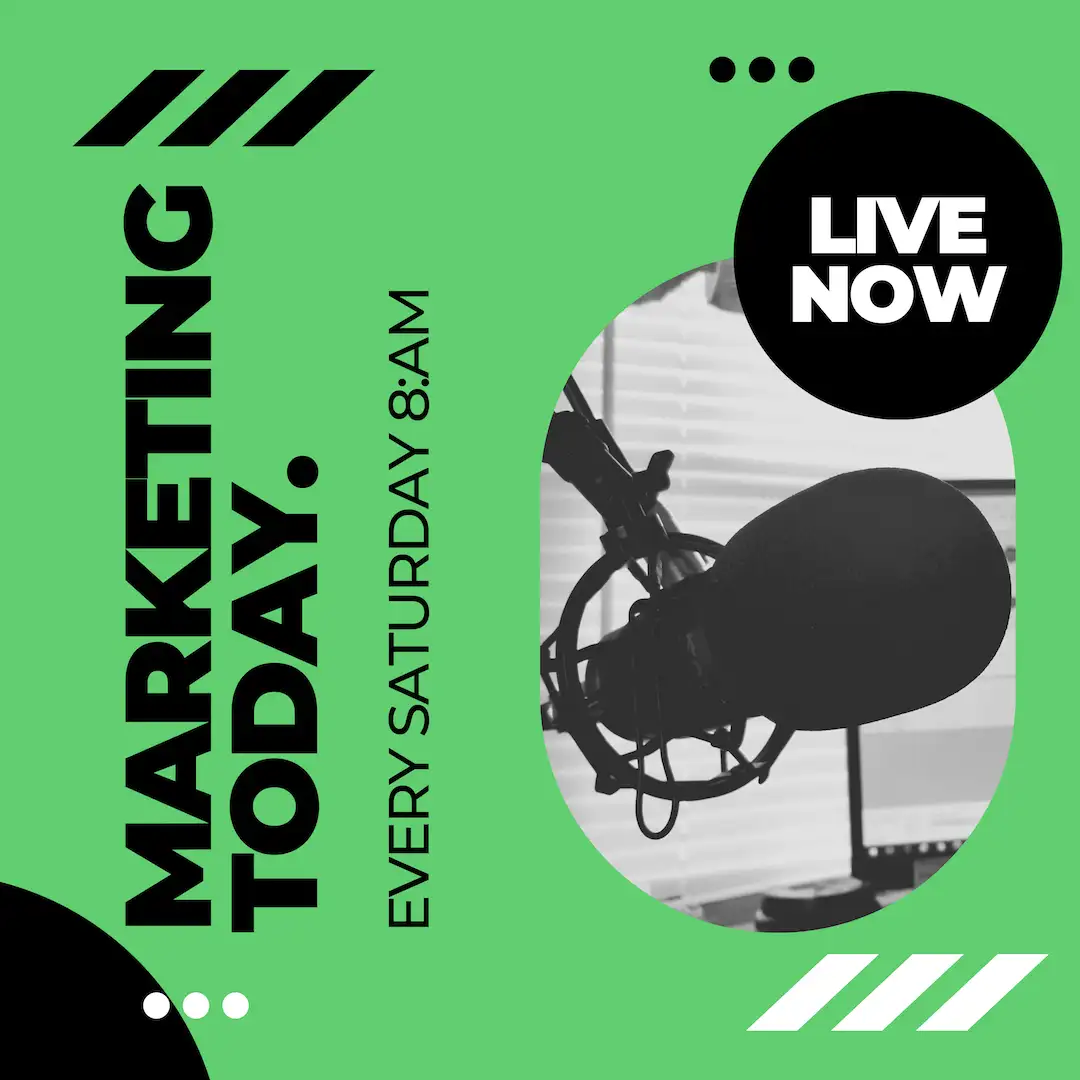
Your artwork should be high-quality and eye-catching. It should also accurately reflect the content of your show.
For example:
If your podcast is about fishing, your artwork might feature a photo of someone fishing on a lake.
If your podcast is about business, your artwork might feature a corporate headshot or an image of the skyline.
Some other things to pay special attention to with your artwork are:
- Your brand’s colors: Use colors that match your brand’s identity. This will help people recognize your podcast more easily.
- Your title: Make sure your title is easy to read and understand. No one wants to spend hours trying to figure out what your show is about
- The format: Most podcast directories require artwork of a specific size and format. Make sure your artwork meets these requirements before you upload it.
- Professionalism: Your artwork should look like it was created by a professional. This doesn’t mean you need to hire a designer (although it certainly couldn’t hurt). Just make sure your artwork looks polished and well put together.
But it’s more than just creating artwork. You also want to ensure that these images are optimized for SEO.
Google loves images, and they love it when those images are tagged with relevant keywords.
When you upload your artwork to your website or hosting platform, make sure to include keywords in the file name and fill out the alternate text field with a brief description of the image.
This will help Google index your image and could even help you rank higher in image search results.
I’ll repeat it for those in the back…
Use keywords in your image title, description, and alt-tags.
Your cover art is also an excellent place to include relevant keywords. This will help you show up in search results when people are looking for a podcast like yours.
When you include descriptive alt-text in your cover art, Google can index it and use it to determine what your show is about.
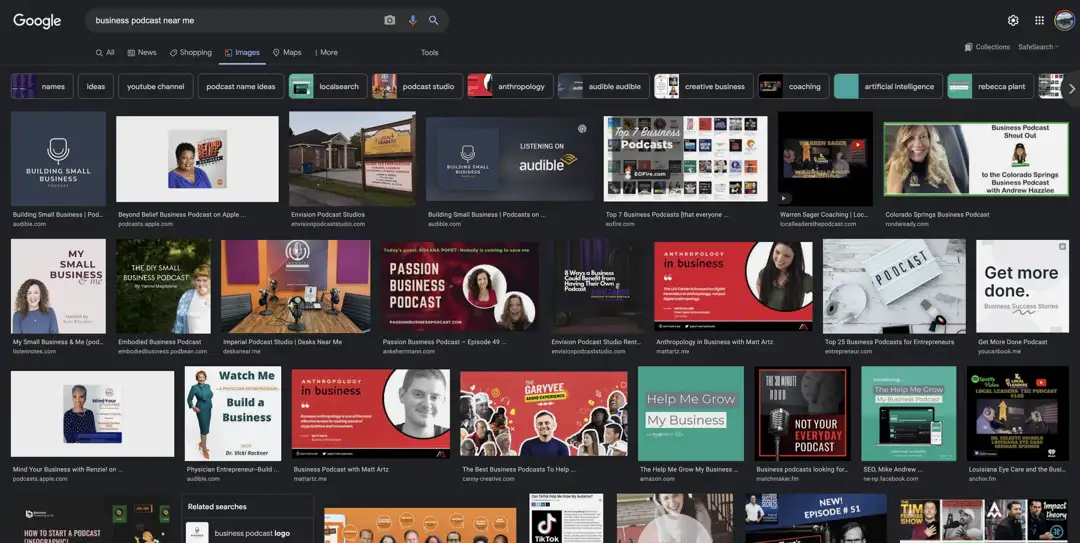
Plus, your cover art will appear in Google’s image index, which can help you attract even more listeners.
5. Have a website and RSS feed for your podcast
Here, I’ll tell you a story:
There were two podcasters – we’ll call them Jon and Ron.
Jon had a website for his podcast. He made sure to include relevant keywords in his website’s title and description, and he included high-quality cover art.
He also promoted his show on social media and submitted it to popular podcast directories.
Because of all this, Jon’s podcast was easily found by potential listeners. His show quickly gained popularity and soon had a large and engaged audience.
On the other hand, Ron didn’t have a website for his podcast. He didn’t think it was necessary, and he didn’t want to put in the extra work.
As a result, Ron’s podcast was much harder to find. Potential listeners had to search long and hard to find it, and most of them gave up before they ever found it.
Ron also boasted that posting links on Facebook to his shows on Youtube and Itunes was all the promotion he needed.
But because no one could easily find or subscribe to his podcast, Ron quickly lost listeners. His show faded into obscurity, and he wondered why he thought podcasting was a good idea.
Moral of the story: If you want people to listen to your podcast, you need to make it easy for them to find it. And the best way to do that is to have a website for your show.
Your website doesn’t need to be elaborate or fancy. A simple, clean design is all you need. Visit our podcast website service page to learn how we can help.
Does your podcast have a website?
If not, you could end up like Ron: Spinning your wheels with a show that no one listens to. Contact us today or complete the form below to learn how we can create the perfect website for your brand and get your show in front of the masses.
But there are a few things your website must have:
What every podcast website needs
To be competitive in the search engine results pages, there are a few things that every podcast website should have:
- Your podcast’s name and logo: Make sure these are prominently displayed on your website so people can quickly identify your show.
- Your podcast’s description: Give potential listeners a brief overview of your podcast. Include relevant keywords so people can find your show in search engines.
- Subscribe links: Include links to your podcast on popular podcast directories like iTunes, Stitcher, and Google Play Music. Make it easy for people to subscribe to your show.
- Social media links: Include links to your podcast’s social media accounts so people can follow you and share your episodes with their friends.
- RSS feed: Include an RSS feed of your podcast so people can subscribe using their favorite podcast app.
- Episode transcripts: Include transcripts of your episodes so people can read along as they listen. This is also helpful for people who are hard of hearing or prefer to read instead of listen (more on that to come).
- Embeddable player: Include an embeddable player on your website so people can listen to your episodes right on your site.
Bonus tip: If you want to really optimize your website for SEO, you can also include a blog on your site. This gives you another opportunity to use relevant keywords and attract new listeners (again, more on that to come).
6. Optimize your website for SEO
If you want people to find your podcast on Google, you need to optimize your website for SEO.
SEO stands for “search engine optimization.” It’s the process of making your website more visible on the search engine results pages (SERPs).
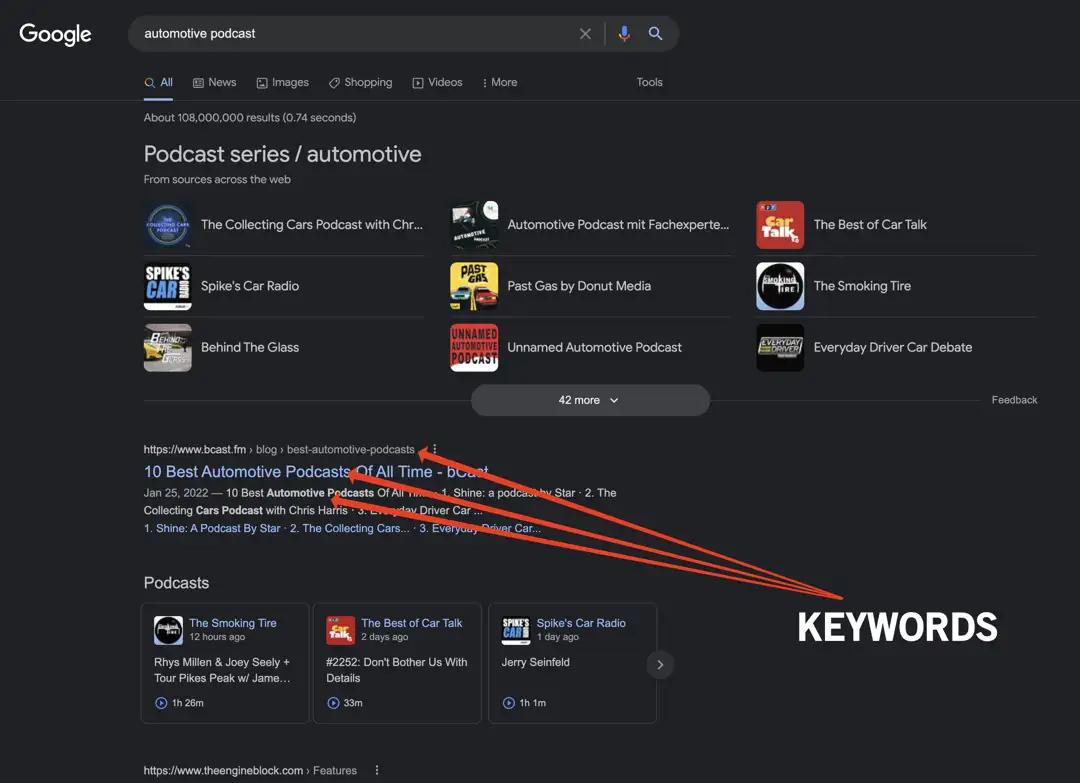
There are a few things you can do to optimize your website for SEO:
- Use relevant keywords: Include relevant keywords in your website’s title, description, and blog posts. This will help people find your site when searching for those keywords on Google.
- Submit your site to podcast directories: Submitting your podcast to popular directories like iTunes and Stitcher will help people find your show.
- Promote your podcast on social media: Posting links to your episodes on social media sites like Facebook and Twitter will help people find your podcast.
When you take the time to optimize your website, you’ll increase the chances that your podcast shows up when people are searching for shows like yours.
Need help promoting your episodes? Visit our social media marketing for podcasters service page to learn how we can help.
Provide accurate transcriptions of your episodes
Remember how I said including transcripts of your episodes is good for SEO?
Well, that’s because transcripts give you another opportunity to use relevant keywords on your website.
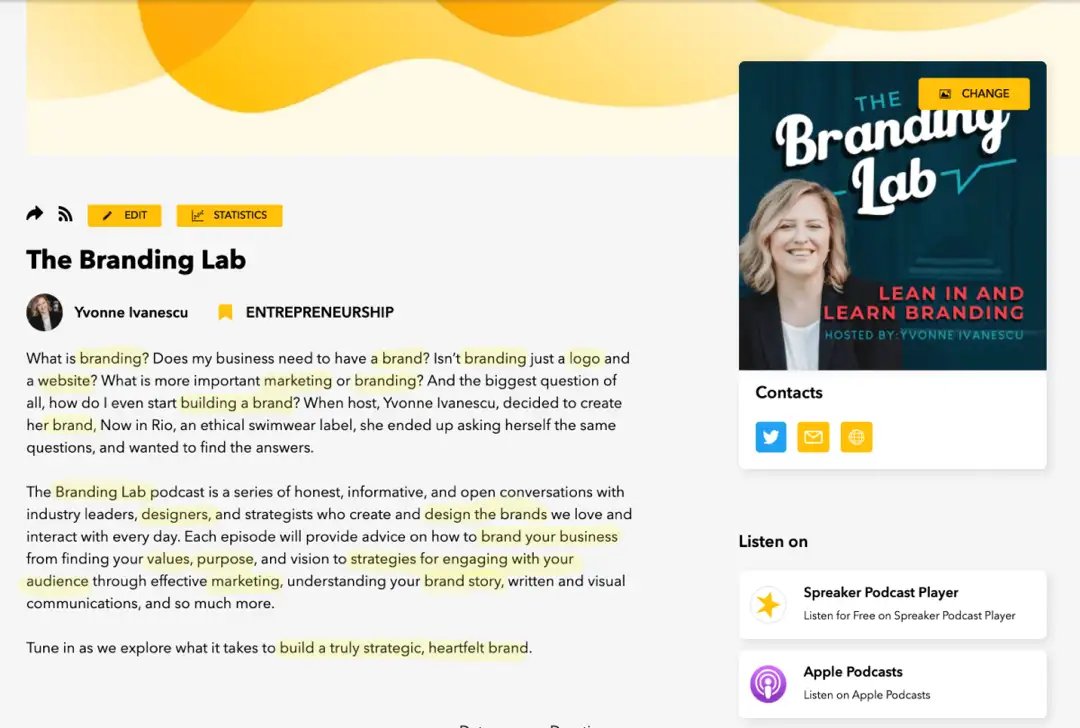
Including transcripts also has other benefits. For example, it allows people to follow along with your episodes if they’re hard of hearing or prefer to read instead of listening.
Now, transcribing your show can be time-consuming. But there are a few ways you can make it easier on yourself:
- Hire someone to transcribe your episodes: You can use a transcription service like Rev.com or Fiverr.com to transcribe your episodes for you.
- Use speech-to-text technology: There are a few speech-to-text programs you can use to transcribe your own episodes like Dragon Naturally Speaking.
- Use a SaaS platform online: There are also a few SaaS platforms that offer transcription services like Otter.ai.
One more important note. Ensure your transcriptions accurately reflect what was said on your podcast episode. If not, you could end up with a lot of angry listeners!
Write blog posts about your show.
Another often-overlooked way to optimize your website for SEO is to write blog posts about your podcast.
This gives you another opportunity to use relevant keywords and attract new listeners.
I see it all the time; A podcaster who would rather people hear his voice or see his face instead of reading a blog post. But the fact is, not everyone wants to listen to or watch a podcast. Some people would rather read about it first.
And that’s perfectly fine!
If you can reach those people with a well-written blog post, you’ve increased your chances of getting new listeners.
So, how do you write a blog post about your podcast?
First, decide what angle you’re going to take. Are you going to write a review of a recent episode? Or, are you going to share some behind-the-scenes information about the show?
Once you’ve decided on an angle, start writing! And don’t forget to include relevant keywords throughout your post.
Not sure what to write about? Here are a few ideas:
- Episode summaries: Write a summary of each episode and include a link to the episode.
- Guest interviews: If you have interesting guests on your show, write a blog post about the interview. You can even include a transcript or audio clip from the episode.
- Show notes: Share some of the highlights from each episode in a blog post. This is especially helpful if you have a long-running podcast with hundreds of episodes.
- Podcast reviews: If you’re a new show, consider writing reviews of other podcasts in your niche. This will help you attract listeners interested in that type of content.
7. Promote your podcast on social media
Social media is a great way to promote your podcast and attract new listeners.
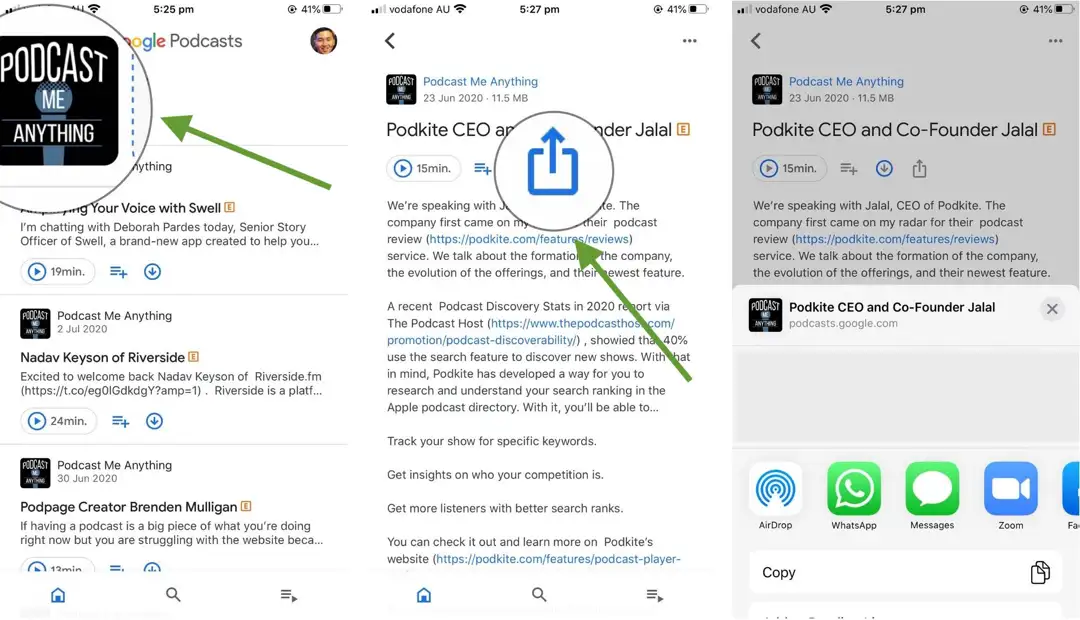
After all, that’s what social media is for – sharing content with your followers!
When promoting your podcast on social media, there are a few things you should keep in mind:
- Share each episode: Share every new episode on social media. You can post a link to the episode on your website or blog or share it directly from your podcast hosting platform.
- Use images and videos: People are more likely to pay attention to your posts if they contain pictures or videos. So, add an image or video to each social media post about your podcast.
- Include a call-to-action: Tell your followers what you want them to do after listening to your episode. Do you want them to subscribe to your podcast? Leave a review? Share the episode with friends? Make sure your call to action is clear and concise.
- Use hashtags: Hashtags are a great way to reach new people interested in your content. When promoting your podcast on social media, use relevant hashtags so people can easily find your posts.
Here are a few ideas for promoting your podcast on social media:
- Facebook: Create a Facebook page for your podcast and share each new episode. You can also join relevant Facebook groups and share your episodes there (but please don’t abuse the @everyone tag!)
- Twitter: Tweet about each new episode and use hashtags to reach new listeners.
- Instagram: Share images and videos from your podcast episodes on Instagram. You can also use Instagram Stories to promote your show.
- Pinterest: Create pins for each podcast episode and share them on Pinterest.
Promoting your podcast on social media can reach a wider audience and attract new listeners.
8. Engage with your audience and encourage reviews
Dear Podcaster,
You’re not a freaking rockstar.
You’re not Joe Rogan.
You’re not Theo Von.
You’re not even Tim Ferriss.
You’re just a regular person who makes a podcast, so act like it.
Be engaged with your audience.
Reply to their tweets.
Answer their questions.
And for the love of God, encourage them to leave reviews!
The more reviews you have, the higher your podcast will rank on iTunes (which is still the number one way people discover new podcasts).
So, how do you encourage people to leave reviews?
It’s actually pretty simple:
Just ask!
At the end of each episode, tell your listeners that you would appreciate it if they left a review on iTunes (or whatever platform they’re listening on).
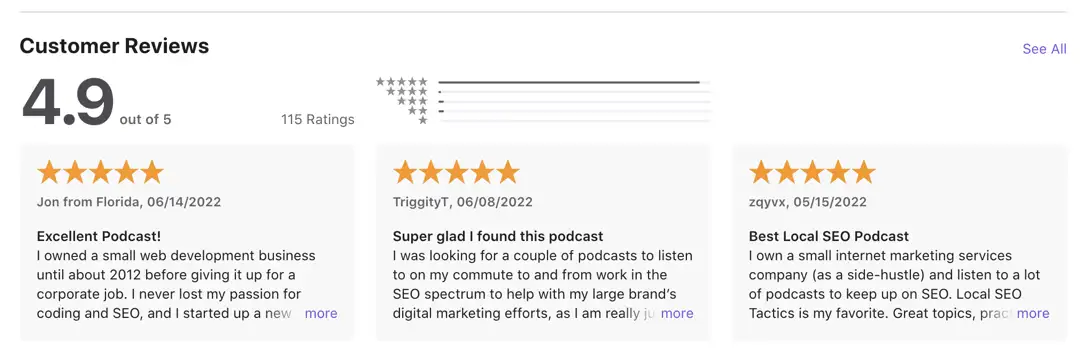
You can even give them a specific reason to leave a review, like “it helps us attract new sponsors” or “it helps us get featured in iTunes”.
Whatever your reason, make sure you let your listeners know why reviews are important to you.
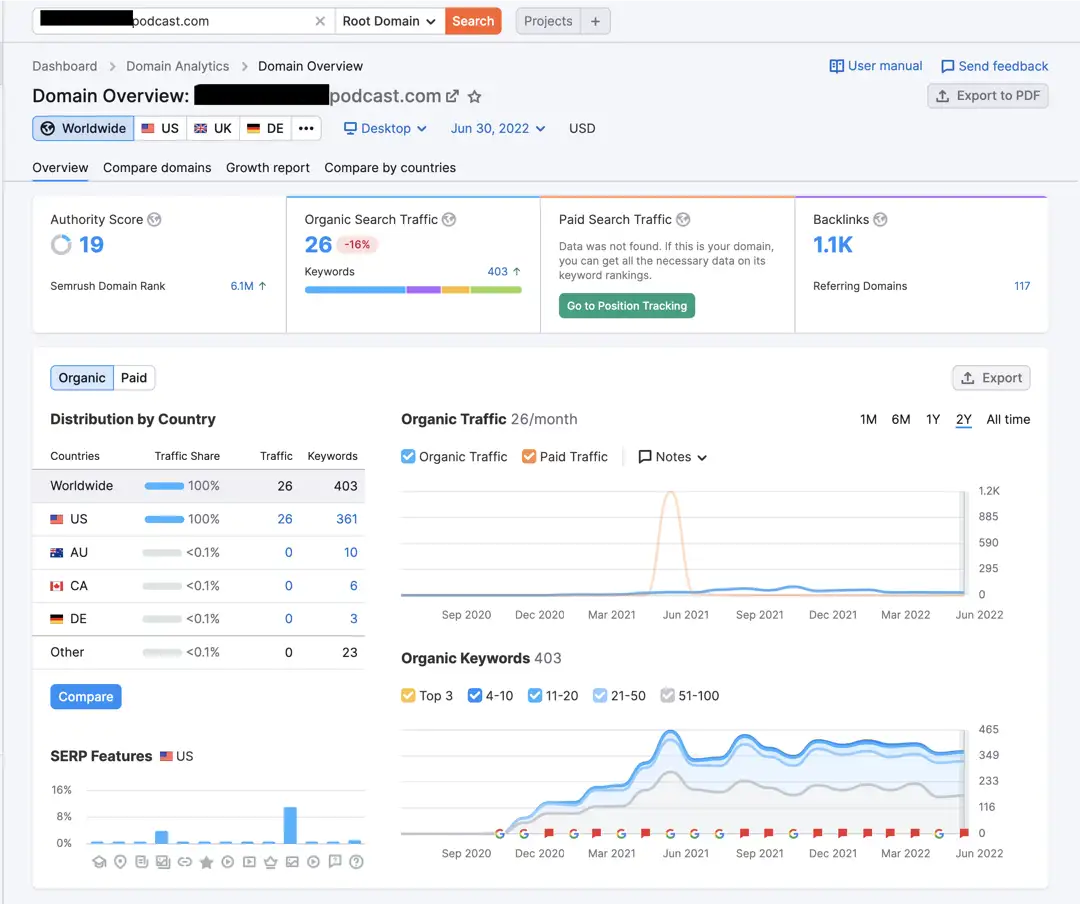
9. Monitor your rankings and make necessary adjustments
Lastly (and here’s where most microphone jockeys fail), you need to monitor your rankings and adjust your strategy accordingly.
This means paying attention to where your podcast ranks in iTunes, Google, and other directories.
It also means keeping an eye on your listener numbers and social media engagement.
If you see a sudden drop in rankings or engagement, look at what you’ve been doing lately and see if there’s anything you can change.
Maybe you’ve been slacking off on social media promotion.
Or maybe you’ve been using the wrong keywords in your show notes.
Whatever the case may be, it’s essential to monitor your progress and make necessary adjustments along the way.
Use actual data, not a “gut feeling,” to guide your decisions.
By following these simple tips, you can rank higher in Google search results and attract more listeners to your podcast. Just remember to be patient, consistent, and engaged with your audience. With a bit of time and effort, you’ll be on your way to success!
Hire a professional digital marketing agency.
BlakSheep Creative can help you increase your podcast’s visibility online and attract more listeners. We offer various digital marketing services, including SEO, social media promotion, and website design.
We can help you create a website optimized for SEO and designed to promote your podcast. We can also help you create social media posts that will reach a wider audience.
If you’re ready to take your podcast to the next level, contact us today!
